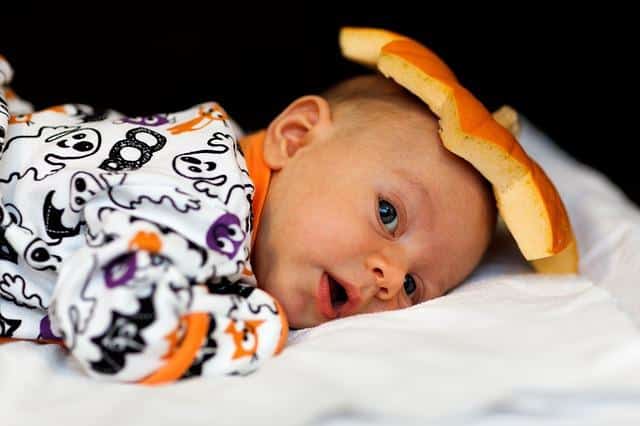
Insomnia in children responds to various causes, but most are solved by applying healthy habits and routines at night. We have some recommendations for your son and your family.
Insomnia in children is a reason for frequent consultation with the pediatrician, despite the general perception that little ones always sleep well and a lot. It is estimated that between 25 and 50% of children under 5 years of age have had problems falling asleep for more than 3 months.
Sleep is one of the most important aspects of life. It allows us to face daily activities, but it is also essential to maintain a healthy physical and mental state.
The problem is that sleep habits must be instilled from the first moment of life. Insomnia in children has numerous repercussions on their development and throughout adult life. Therefore, in this article, we explain everything you should know and how we can help them improve their sleep.
What is insomnia in children?
Insomnia in children, like in adults, consists of the difficulty of reaching the dream. It can also consist of frequent awakenings during a night. It is normal for both situations to occur.
The medicine defines insomnia as the difficulty to initiate or maintain sleep at least 3 times a week, over a month. It is important to emphasize it because the fact of not sleeping well one or two nights should not be considered as insomnia.
Sleep can be affected by many factors in daily life. The causes of insomnia in children can be environmental, psychological, or medical. For example, it could be a reflection of a conflict within the family or a sign of child abuse.
However, almost 70% of insomnia cases in children are because bedtime habits are not correct. As we said before, having adequate sleep hygiene from the first moment of life is basic for the rest of the stages.
What other sleep problems are there?
Insomnia in children is one of the most frequent sleep problems, but it is not the only one. It often tends to be associated with others. For example, it is common for insomnia to be related to a child’s fear of sleeping alone.
Another category of disorders is parasomnias. They are phenomena that appear during sleep, once the child has already fallen asleep. Here we find nightmares, night terrors, sleep apnea, and enuresis, among others.
Night terrors appear in the first part of the dream, within a few hours of being asleep. They consist of the child suffering intense and uncontrollable fear. At this time, the child does not control his movements nor can he regain consciousness.
The main difference from nightmares is that night terror is rarely remembered upon waking. Nightmares, on the other hand, do tend to leave a negative memory and also occur during the REM phase of sleep.
Apnea sleep is also a disorder in childhood that stands out because it scares parents. The child stops breathing for about 10 seconds while sleeping. This disorder is associated with others that come later, during the day, since the child does not rest well and suffers the consequences in her studies, for example.
What symptoms does insomnia produce in children?
Often, detecting insomnia in children can be complex for parents and pediatricians. It is important to pay attention to your bedtime attitude, because you may be nervous or reluctant to go to bed at that time.
Also, during the day the child often seems tired or is not active. During the night, the infant will try to find entertainment to delay the moment of sleep as such. This may be the request to read another story or go to the bathroom frequently.
Sometimes they only seek the company of their parents or an adult relative. Something similar happens with nightmares and is explained by fear or terror of loneliness and darkness. In the case of the little ones, they might cry for hours.
How to avoid insomnia in children
Insomnia in children requires parents to create a series of healthy habits and behaviors to solve it. Even though many choose drugs as a solution to the problem, in the case of children they are usually not very helpful.
There are several measures that, according to different studies, help to create good sleep hygiene. First of all, it is recommended not to sleep next to the child. That is, not being present just at the moment when the dream is reached.
In this way, the infant is prevented from associating sleep with a presence. Besides, some boarding guides recommend gradual extinction. This consists of leaving the children in bed and entering the room at night. More and more time must pass between one visit and another.
What we must take into account is that it is possible to consult with a pediatrician. The specialist could make specific recommendations for each case and help us develop a useful routine.




